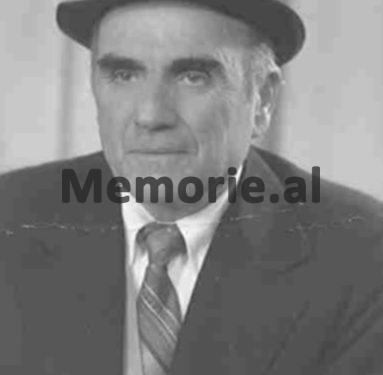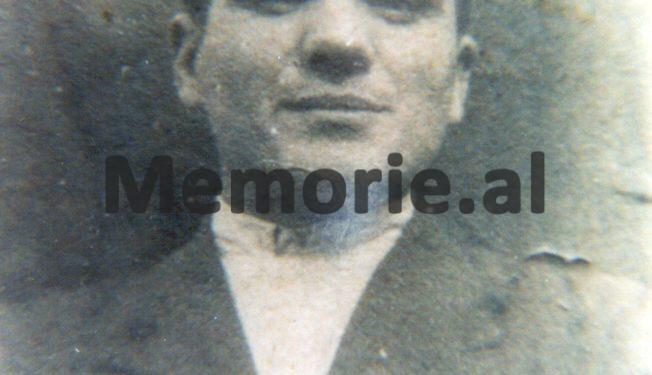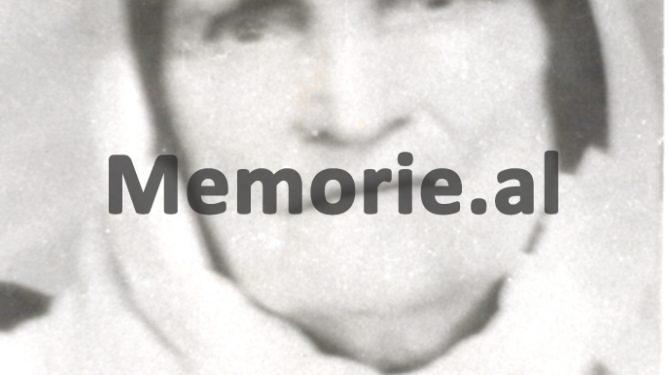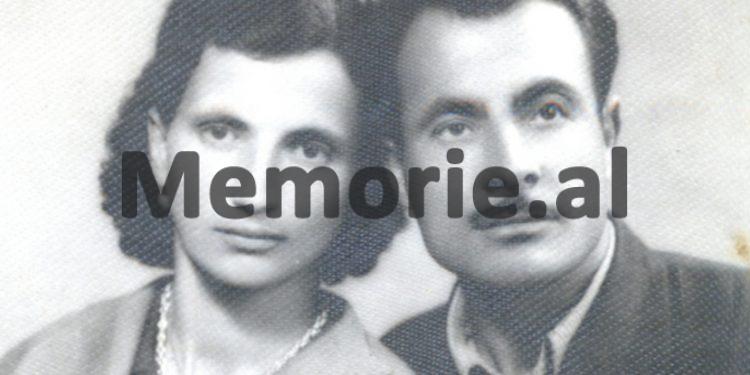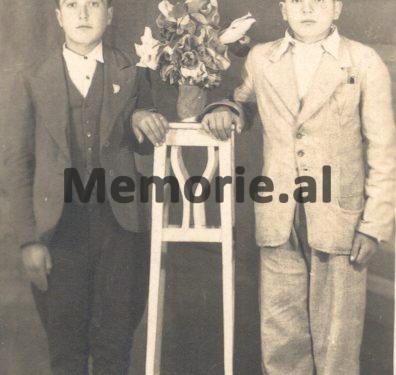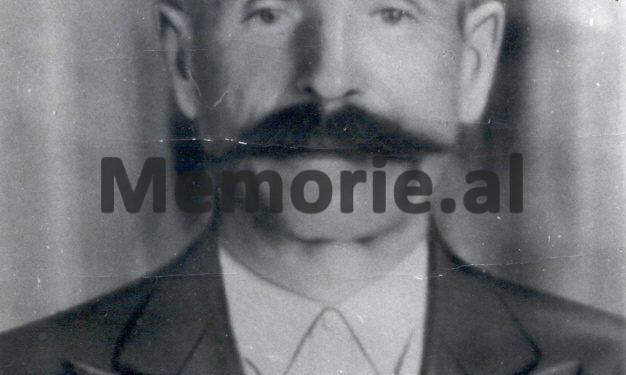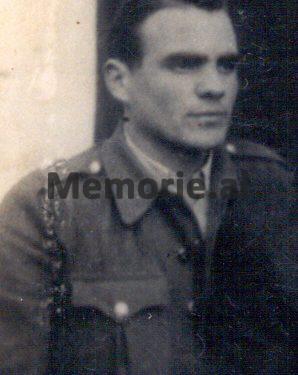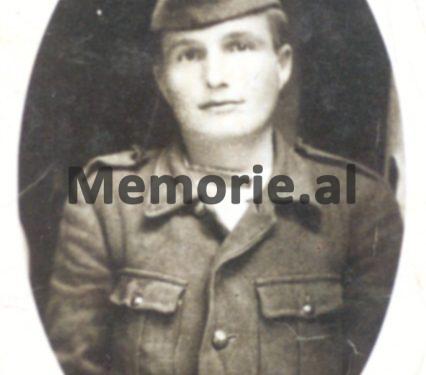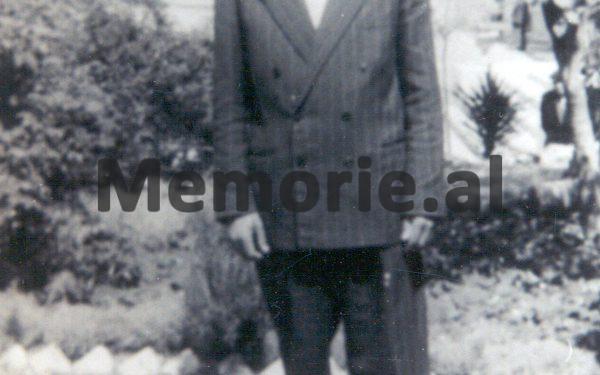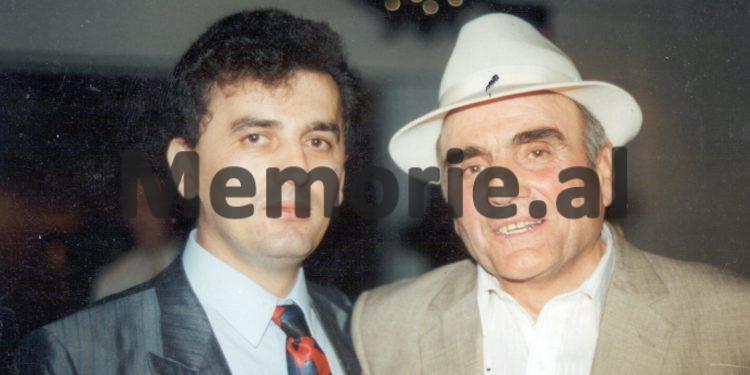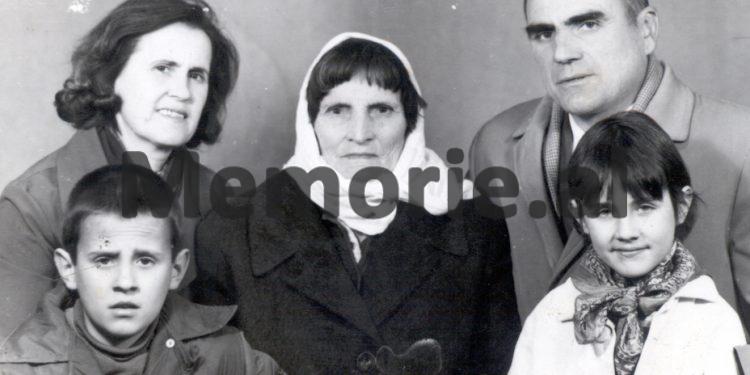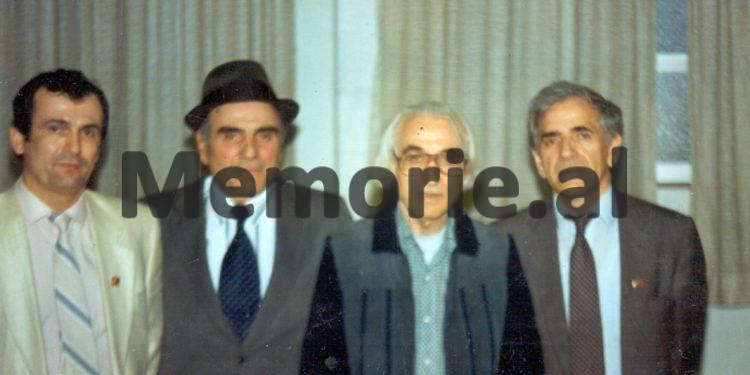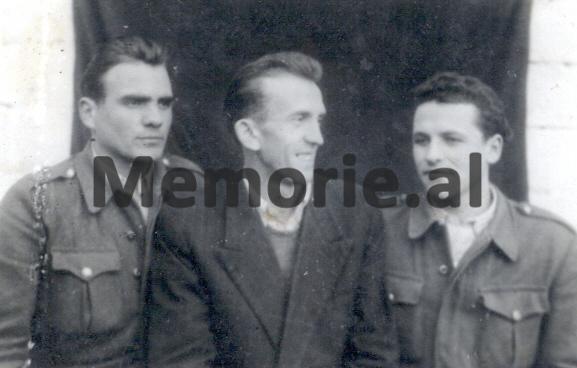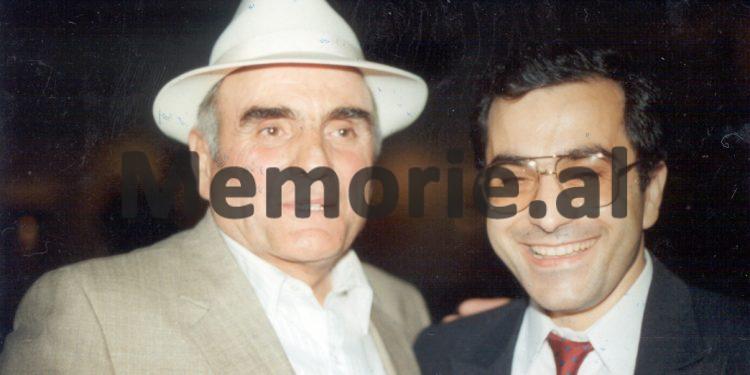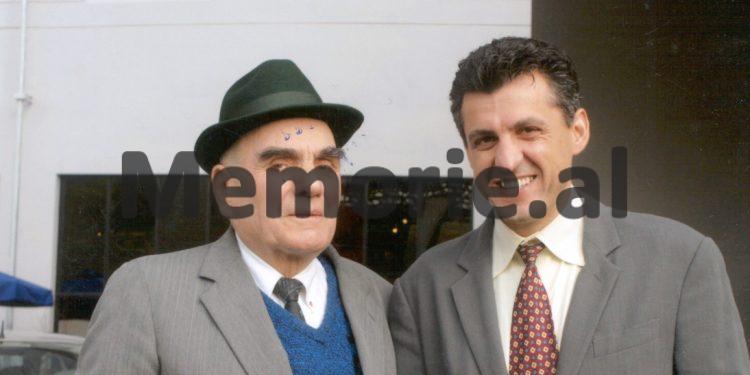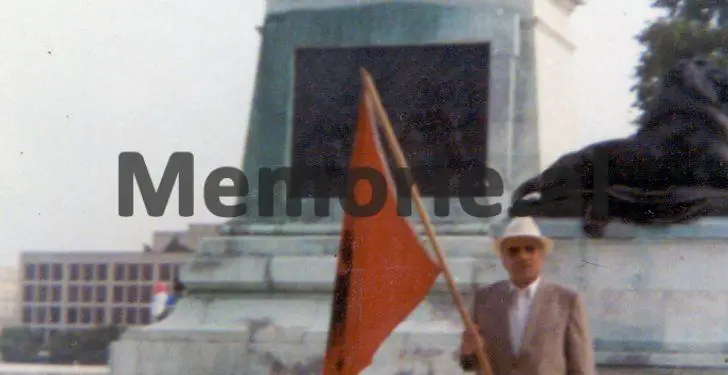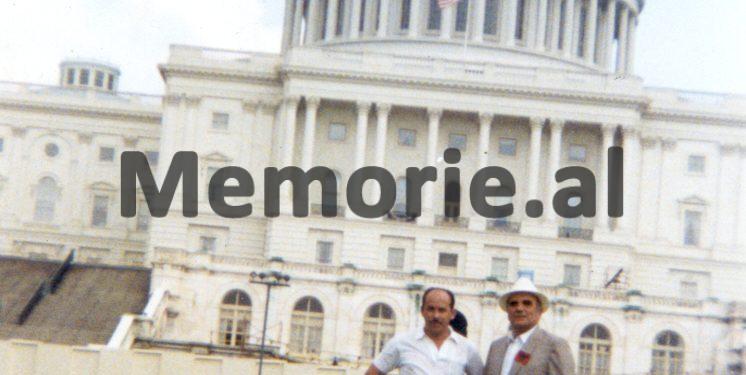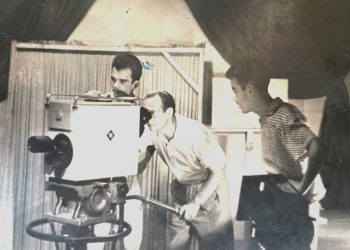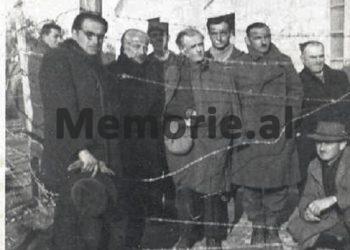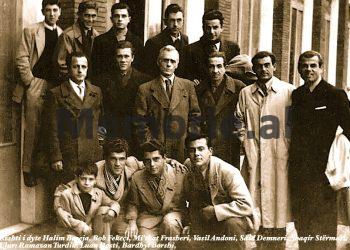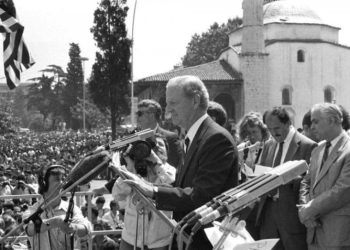Dashnor Kaloçi
Memorie.al publishes the unknown story of the Gjeloshi family from Triesi, Montenegro, through the rare testimonies of Zef Dod Gjeloshaj, one of her suckers, who in January 1950, after the conflicts his family had with the Tito regime , where some of their sons were killed, as well as the event when the Gjeloshi family fought for several hours against the Serbo-Montenegrin military forces, after refusing to hand over a Serbian officer (grandson of Djoko Mirasovic, “Hero of the Peoples of Yugoslavia” who has two busts in Montenegro), who had asked for their trust, he was forced to flee Montenegro, coming to Albania as a political emigrant. Zefi’s “stabilization” in the Llakatund camp in Vlora, where the communist regime of Enver Hoxha kept isolated about 800 Yugoslav citizens of Albanian origin, who due to the discriminatory policy of the Titoist regime towards the Albanian population living in their ethnic lands in Montenegro, Kosovo and Macedonia, as well as Rankovic’s crimes against them, had fled and come to Albania. Zefi was appointed a teacher in the Lushnja district, where in 1951, the Ministry of Internal Affairs summoned him to Tirana, where two officers, Petrit Arbana and Vilson Pecani, who covered Yugoslav emigration to Albania, charged him with a secret mission, sending him in Yugoslavia together with the Serbo-Montenegrin Colonel Petar Blazovic, who had resigned as UDB Chief for Montenegro and fled. What tasks did Zef Gjeloshaj perform in Yugoslavia, how did the secret mission assigned to him by the Ministry of Interior in Tirana end and why was he sentenced to 15 years in prison in Albania, accused of killing the UDB colonel with his own hand?!
At the beginning of January 1950, as Zef Gjeloshaj from Triesi, Montenegro, forced by the Serbo-Montenegrin persecution and genocide, was crossing the Yugoslav border to enter Albania, he had never thought that in his homeland, for him who had woven those beautiful dreams, would be arrested and sentenced to 15 years in political prison. Moreover, that political sentence given by the Military Court of Tirana, would have to do with a very serious and very absurd accusation, as Zefi was accused of: “he had killed with his own hand a Yugoslav UDB colonel “!
Shortly after he escaped from Yugoslavia and came to Albania, at the request of senior officials of the Ministry of Internal Affairs, he was assigned a special mission. The mission consisted of illegally entering Zefi, Montenegro, together with UDB Colonel Peter Blazovic, to carry out some special tasks for the communist regime of Enver Hoxha.
Who was Zef Gjeloshaj, what was his past and how did he manage to escape from Yugoslavia and come to Albania in 1950?! Who was the UDB colonel, Peter Blazovic, where he served until 1948, and why in that period did he leave the post of UDB chief for Titograd and was on the run? How did the Albanian intelligence authorities find out Blazhoviç’s whereabouts in the forests of Montenegro and how did the agents manage to contact him?! What secret mission was assigned to Lekovic by Mehmet Shehu and why did he remain silent during the meeting with the Soviet ambassador in Tirana? Why did the Albanian state allow the two Yugoslav colonels to be repatriated to Yugoslavia after their release from prison, and why would Zefi be acquitted in 1984?
Regarding all these and other events and facts from his life, as well as the history of his family, although at a young age and with a life full of vicissitudes and great sufferings, Zef Gjeloshaj reminded him with details and details everything had passed, telling us publicly in this interview that we are publishing in some issues exclusively for Memorie.al
Zef Gjeloshaj and the story of the famous family in Triesh, Montenegro
Zef Gjeloshaj was born in 1931, in the Albanian province of Tries in Montenegro, where his family comes from, which comes from the well-known Lulnikaj tribe, which includes two other branches of the tribe, the Arapaj tribe and Margilajve. Among the most famous men of these three tribes were: Tom Hasi of Gjeloshaj, Gil Doshi of Margilaj and Malot Gjeka of Arapaj.
While among the most famous men who came from the tribe of Gjeloshaj, was Marash Mark Gjeloshaj, who was the captain and the first of that tribe. He was born around the 1830s, and since a very young age, has been known as a man of great authority, not only in that province but beyond. As the commander of the country, Marash Marku of Gjeloshaj, had taken part in all the wars waged by the highlanders of that area, against the Turkish and Serbo-Montenegrin forces.
One of the most famous stories of Marash Marku, is said to have been that of the Zharnica Bridge, where in the presence of Krajl Nikolla, Marku tore the Sultan to the Turkish Vizier, the order of the Sultan, in which bargains were made at the expense of Albanian lands. After the death of Marash Marku, his place at the head of the country command was taken by Zef Lokja and after Zef, he was succeeded by Nik Zek Gjeloshaj, who held it until 1944, when the partisan forces of Josif Broz entered Tito.
The story of the famous family of Gjeloshaj, continues with Dod Smajli, father of Zef Gjeloshaj, who was born in 1886, in the village of Nikmarashaj of Triesi and was one of the most famous and famous men, not only of that family, but also among all the Albanians of Montenegro. Dod Smajli’s wife, Prenda Nikprelaj, had served all the participants of the Grece Memorandum, which was held in that province in 1911.
While Doda himself, participated with weapons in hand in the gang of Dedë Gjo Luli, while his brother, Tom Gjeloshaj, was the first teacher of Albanian language in Montenegro. During the years of World War II, Dod Smajli’s family maintained a neutral stance, supporting the Anti-Fascist Movement and assisting both the Serbo-Montenegrin partisan brigades and those of Enver Hoxha’s Albanian National Liberation Army.
Dod Smajli, refused to take a high position in the Albanian government of the period of German occupation, an offer made to him by the Minister himself, Kole Bibë Mirakaj, who went to his home in Triesh. Doda’s two sons, Noshi and Nikolla, joined the Serbian-Montenegrin and Albanian partisan brigades, where they took an active part in many battles, while their home was turned into a partisan hospital.
After the end of the war, in the framework of the “Unity-Brotherhood” policy that began to follow the Tito regime, Dod Smajli’s family had no problems with the Serbo-Montenegrin communists, and his two sons, Noshi and Nikolla, joined the ranks. of the Yugoslav Army where they served as military. But that “friendship” with the Serbo-Montenegrin communists did not last long, and in 1946, between the house of Dod Smajli and the Titoist regime, a great rift began.
This came after the murder of Nikola, a Serbian officer in Belgrade, who had insulted him in public. The military court sentenced Nikolla to death, but after the intervention of Dod Smajli, near Marshal Tito, he was pardoned by a special decree and was able to get out of the terrible prison of Goli-Otok. But only a short time after his release from that prison, as a result of the inhuman tortures that were inflicted on him there, Nikoll Gjeloshaj passed away.
Four years after the death of Doda’s son, a tragic event took place in the Gjeloshaj family, which caused a great commotion among all Albanians in Montenegro. At Dod Smajli’s house in Tries, a Serbian officer, who was being persecuted by the Belgrade regime, sought refuge after openly defending his uncle, Djoko Mirasovic, known as the Hero of the First and Second World Wars. twice decorated, the “Hero of the Peoples of Yugoslavia” (today there are two monuments in Podgorica) that was closed in the Goli-Otok prison.
After Doda took him into custody, his house was surrounded by 300 Serbo-Montenegrin military forces of the Emergency Departments coming urgently from Titograd. Seeing the situation created, Doda took all the women and children out of the house, stayed inside with only his son, Martin, and the friend who had asked for his trust. After Doda refused to surrender the Serbian major, a fierce battle broke out, which lasted from evening to morning, where Doda and his Serbian friend tried to break the siege.
But they did not succeed and Doda was killed on the doorstep of his house, with 17 bullets in the chest, along with the Serbian major. Only Martini managed to get out of that house alive, breaking through the siege so wounded and hiding in the mountains of Kelmendi, where some shepherds found him half dead.
Following this event, the Titoist regime immediately arrested Doda’s other son, Noshin, who was a military man in Kotor, and imprisoned him in Goli-Otok. After that, only Prenda’s mother was left in the Gjeloshaj family, with a little girl, because Zefi himself, in order to escape the revenge of the Serbs, escaped and came to Albania. The story of the famous family of Dod Smajli in Triesh, Montenegro, has been written a lot in various books and newspapers by well-known authors such as Aleks Çaçi, Masar Shehu, Mark Gurakuqi, Dr. Myslym Hotova, Prenk Gruda, Shaban Braha, Resul Bedo etc. Also, in 2011, Zef Gjeloshja wrote and published a book of memoirs about his life, with introductions by the famous writer and patriarch of Albanian literature, Dritëro Agolli.
Mr. Zef, why did you leave your hometown Trieshi, and how did you come to Albania?
Forced by the persecution and the Serbo-Montenegrin genocide, after the death of my father, Dod Smajli, and the tortures inflicted on my brother, Nikolla, in the Goli-Otok prison, as well as the imprisonment of two other brothers, in the early 1950s, I escaped and came to Albania.
After your arrival in Albania, who remained in your family in Montenegro?
In my family only my old mother, Prenda, remained with a little girl. It is horrible to think that in a family of 14 members, she would stay for almost a decade!
When you came to Albania, what was the attitude towards you by the relevant bodies of the Ministry of Internal Affairs?
After my arrival in Albania, the state authorities in charge of Yugoslav emigration, after questioning me to find out the reasons for my escape, deported me to the Llakatund camp in Vlora. At that time in that camp, about 800 people were interned, whom the regime called the suckers of reactionary families and treated them as enemies.
How long did you stay in that camp?
In the camp where most of the Albanian-educated Western intelligence was located, I was detained for several months and then released. My release came after the Albanian authorities learned the truth about the persecution of my family in Tries.
Where were you sent then?
Due to the fact that I had finished the Pedagogical school in Gjakova, I was sent to work as a teacher in the villages of Lushnja, because at that time there was a great need for teachers.
At the time you came to Albania, were there other emigrants fleeing Yugoslavia to come to our country?
After the breakdown of relations with the Soviet Union, after 1948, many Yugoslav communists who sympathized with Moscow came to Albania and sought political asylum. The number of immigrants who came at that time was so large that they were allowed to publish a newspaper in their own language. Also, in the Ministry of Internal Affairs, there was a special directorate, which dealt only with the problems and issues of Yugoslav political emigration in Albania. In that directorate, well-known names worked, such as Vilson Pecani, Petrit Arbana, etc.
How long did you work as a teacher in the villages of Lushnja?
In Lushnje I worked as a teacher until September 1951 and at that time, I was called to the Ministry of Internal Affairs in Tirana. There I was assigned to conduct a top-secret mission in Yugoslavia, along with a Serbo-Montenegrin colonel who had served as UDB chief for Titograd.
Why were you charged with this mission, at a time when you were a simple teacher?
I had no connection with the Ministry of Interior in Tirana, but having the status of a political emigrant, at the same time like all other emigrants, I was also an activist of KOMINTERNI, for the Albanian branch. This was one of the main reasons I was charged with carrying out that secret mission in Yugoslavia, with the former UDB colonel, and the other reason was that I knew the Serbian language and the places where that mission would be carried out in Montenegro.
Who was the colonel and do you know the circumstances under which he came to Tirana?
The Yugoslav colonel was called Petar Blazovic and he was originally from the Montenegrin village of Piperi, which during the War Years (1939-’44) had become one of the most powerful bases of the Anti-Fascist Movement. The early origin of his family was from Albania and in those years, so for the period we are talking about in the years 1945 – ’48 from the family circle of Colonel Blazhovi, there were many senior militaries, even generals and ministers who served in the ranks. of the Yugoslav Army. After being associated with the Anti-Fascist Movement in Yugoslavia, Peter Blazovic, until 1948, served as head of the UDB for Titograd with the rank of colonel. But at that time, that is, the break-up of the Soviet Union’s relations with Yugoslavia and the Comintern Resolution, Colonel Blazhoviisi resigned and fled to the mountains.
Why did this happen?
The village of Piper in Montenegro (where Colonel Blazhovi ishte was from), being one of the villages that most supported the Anti-Fascist Movement in Montenegro during the War, was also spiritually connected to Stalin’s Moscow. But after the breakdown of relations between them, they all turned against the policy of the Tito regime, supporting the policy of Stalin and became zealous anti-Titoists. One of those cadres who denounced the policy of the Titoist regime and supported that of the Soviet Union was Colonel Blazovic, and for this reason, he resigned from the post of UDB Chief for Titograd, fled to the mountains.
How did Colonel Blazhovi mund come to Tirana?
For his escape, of course, the relevant bodies of the Albanian Intelligence were informed through his special channels that dealt with that work and after that, through his people, the Albanian Intelligence was able to get in touch with him, in those places where he hid, in the highlands of Montenegro. In those meetings he was proposed to come to Albania, as the Albanian Intelligence and the Comintern branch in Tirana were primarily interested in the people of the tribe who continued to hold senior leadership positions in the Yugoslav Army, the UDB and the government of Montenegro. This, I think, was one of the reasons he was asked to come to Albania, which he accepted as a request, as at that time Albania was closely linked to Stalin’s Moscow. Memorie.al
Continues tomorrow




